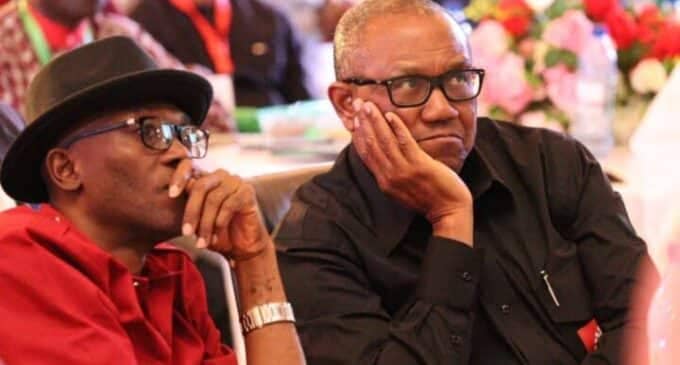The Secretary to the Government of the Federation (SGF), Senator George Akume, has said that former Vice President Atiku Abubakar, will become Nigeria’s president someday if it is the will of God for him.
Akume stated this while speaking on the intense political atmosphere in preparation for the 2027 general elections.
The SGF, however, urged Atiku and other northern political figures with presidential aspirations to be patient until 2031.
He emphasized that the opportunity for the northern region to assume the presidency will not arise in 2027.
In discussing the ambitions for the presidency, Akume encouraged those seeking the role to defer their aspirations until 2031, thereby granting President Tinubu, who hails from the south, the chance to fulfill a possible second term.
“President Tinubu should be allowed to serve a second term. Those from the North, including Alhaji Atiku Abubakar, should look beyond 2027 and consider 2031,” he said.
Akume added, “If it is God’s will for Alhaji Atiku Abubakar to become President, even at the age of 90, it will happen. But for now, they should let President Tinubu continue his work of repositioning the nation.”
Speaking on the controversial Tax Reform Bills before the Senate, the SGF urged Nigerians to permit the bills to progress through the necessary legislative procedures, asserting that these bills are thoughtfully crafted for the benefit of the Nigerian populace.
Akume advocated for the Tax Reform Bills as forward-thinking legislation aimed at revitalizing the nation’s economy, calling on Nigerians to endorse their approval in the National Assembly.
During an appearance on TVC’s Politics on Sunday program, hosted by Femi Akande, the SGF highlighted that the proposed reforms serve the best interests of Nigeria and its citizens.
“These bills are well-envisioned for Nigeria and Nigerians. Let us allow the legislative processes to take their course. These reforms will ultimately benefit everyone when fully implemented,” Akume stated.
Highlighting the administration’s economic strategies, Akume pointed to removing fuel subsidies and harmonising foreign exchange windows as key steps in stabilizing the economy.
“It is easy to destroy but difficult to build. These reforms aim to rebuild the Nigeria that previous administrations destroyed,” Akume remarked.
He expressed optimism that the results of these measures would soon be visible, restoring confidence in the nation’s economic trajectory.
“Very soon, Nigerians will begin to see the positive outcomes of these reforms,” he concluded.




